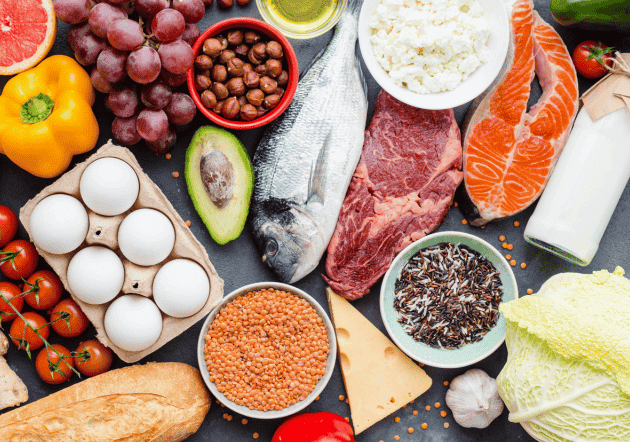Nutrition is key to achieving your fitness goals, whether you’re training for competition or exercising casually. The right nutrients can maximize your performance and results. However, before starting any new nutrition routine, it’s essential to consult with your doctor. Here are some nutrition tips for gym goers:
1. Start with a Nutritious Breakfast:
If you work out in the morning, try to eat breakfast at least an hour before you begin. Carbohydrates fuel your workout and can help optimize your performance. Skipping breakfast may leave you feeling light-headed or fatigued. Throughout the day, focus on consuming complex carbohydrates like brown rice, oats, quinoa, sweet potatoes, and fruits. These foods provide a steady release of energy, essential for sustaining high-intensity workouts.
2. Prioritize Protein for Muscle Repair:
Protein is the building block of muscle, and getting enough of it in your diet helps muscles repair and grow. Make it a priority to include high-quality protein in every meal. Lean meats, fish, eggs, and plant-based options such as lentils, tofu, and chickpeas are excellent sources that support muscle recovery.
3. Choose Healthy Fats for Sustained Energy:
Incorporating healthy fats, like avocados, nuts, seeds, olive oil, and fatty fish (such as salmon), can provide long-lasting energy, especially for endurance activities. Smaller, balanced portions of whole, unprocessed foods also help prevent the sluggishness that sometimes follows large meals. Properly fueling your body with these foods will enhance energy levels and aid in weight management.
4. Hydration is Key:
Staying hydrated before, during, and after a workout is crucial. Aim for 8–10 cups of water per day, and increase this if you’re sweating heavily during exercise. For intense or prolonged workouts, consider replenishing lost minerals with electrolyte drinks.
5. Balance Your Macronutrients:
The right balance of carbohydrates, proteins, and fats is critical for gym-goers. The composition of your calories often matters more than the total number. Tracking your macronutrient intake using apps like MyFitnessPal can help you maintain this balance and stay on track with your fitness goals.
6. Don’t Skip Post-Workout Recovery:
Recovery is an essential part of your fitness routine, helping to prevent injuries and improve long-term results. After your workout, replenish with water, electrolytes, and a mix of high-quality protein and carbohydrates. Proteins like chicken, whey, or Greek yogurt support muscle repair, while carbs like brown rice, fruits, and sweet potatoes restore glycogen levels.
Conclusion:
Good nutrition and exercise go hand in hand. By fueling your body with the right foods, listening to your unique nutritional needs, and allowing time for recovery, you’ll see better results from your workouts. Making mindful, healthy choices will help you reach your fitness goals more effectively.

